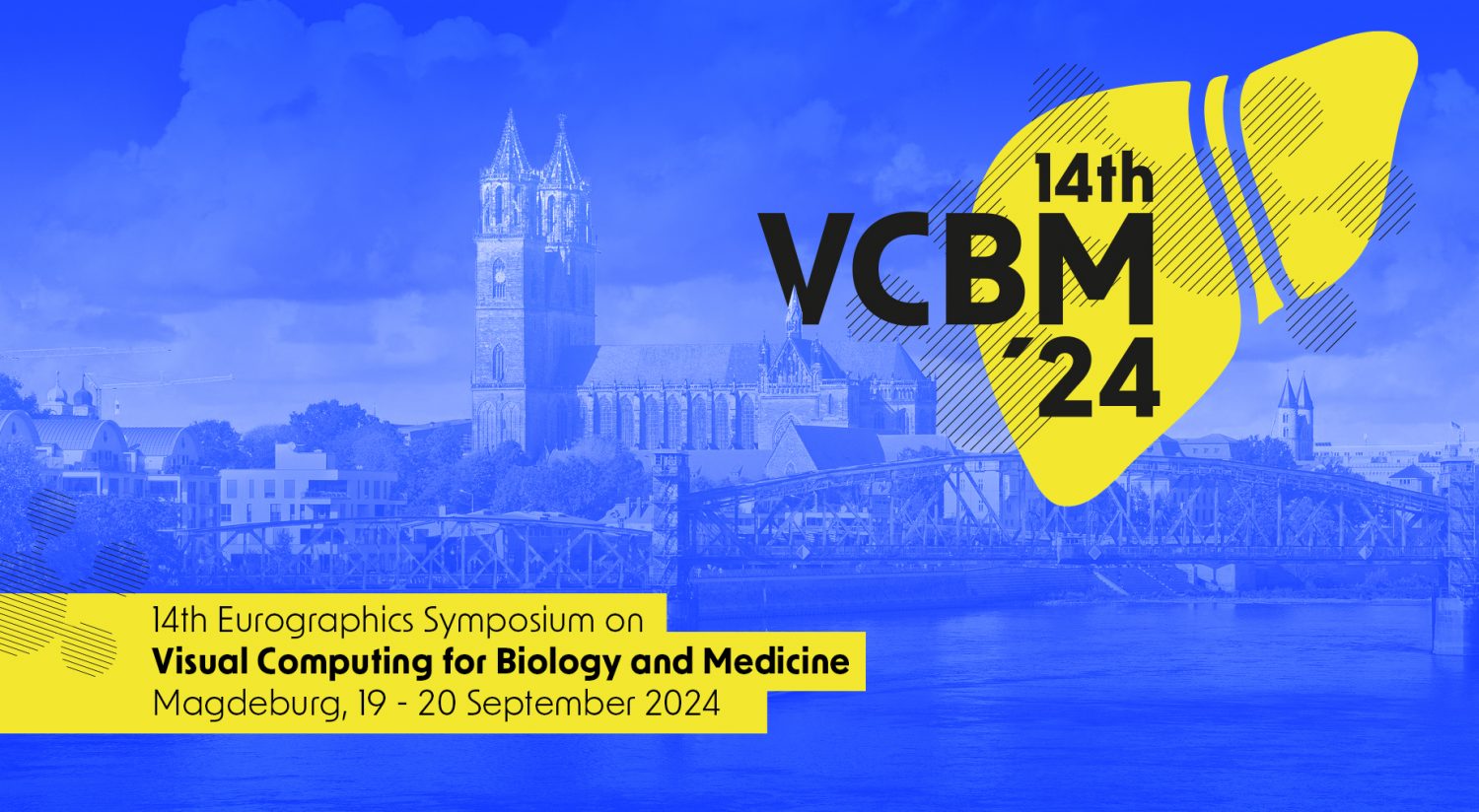Aims and Scope
EG VCBM 2024 continues the poster track to enable researchers to present their work in progress, minor improvements beyond the state-of-the-art, and the best results of undergraduate student projects in the area of visual computing for biology and medicine. Accepted posters will be placed in the workshop area during the time of the event and the program will feature a dedicated poster session where the authors have the opportunity to present their research and lead fruitful discussions with peer researchers that will inspire future research and cooperation.
This year’s posters will be presented on-site (there will be no hybrid mode).
We are also pleased to accept the following types of posters this year:
- Original, application-oriented research posters advancing the fusion of visual computing methods within medicine and biology, according to the general call.
- Research overview posters summarizing biomedical visualization research on topics below. This is an excellent way to highlight, for example, the research carried out within the scope of a Ph.D. project, to promote Ph.D. direction discussions with experts, or to present activities of a specific research group.
- Research group overview posters presenting the current research work of an entire group or a research center. The scope of such a poster can also include upcoming funded projects and thus even indicate open vacancies.
- Posters describing an open research problem presenting a unique opportunity to present an exciting research problem to a broad professional audience and to promote new collaborations that may have been defined by a domain scientist (e.g., a physician or biologist).
- Posters demoing an application showing an application or tool that either addresses challenges for developing visual computing solutions or helping domain scientists. This work does not necessarily present uniquely new ideas as long as the application or tool presents an interesting view.
Suggested topics for posters include, but are not limited to:
- Visual computing solutions for medical applications like radiology, surgery, pathology, cardiology, nephrology, neurology, etc., including medical education
- Visual computing solutions for applications that support biomedical research in systems biology, -omics research, molecular pathology, neuroanatomy, biomedical imaging, etc.
- Medical simulation and visual computing solutions that support new approaches in computational medicine, including also the uses of stereoscopy and haptics
- Visualization approaches for data from new or challenging imaging modalities including real-time imaging (e.g., ultrasound)
- Visual computing solutions in the context of the virtual physiological human
Methods might include, but are not limited to:
- Visualization and analysis of all kinds of biomedical data (signals and images)
- Visualization, mining, and analysis of biomedical data collections, including cohort data
- Information visualization of medical data sets, e.g., electronic health records
- Computer models of biomechanical, physiological, and biochemical functions in living systems
- Fusion, analysis, and visualization of heterogeneous and/or multi-source data
- Multi-scale methods and data structures for large data
- Interaction and design of visual computing workflows in medicine and biology
- Data tracking and registration
- Data reconstruction and geometry extraction
- Real-time rendering and interaction with anatomy models
Submission Instructions
The submission to the poster track at EG VCBM consists of a 1 – 2 page abstract (in a CGF LaTeX style) and must include at least one figure. The poster abstracts will be reviewed by the poster conference chairs and the abstracts of the accepted posters will be included on the VCBM 2024 webpage. The material from the poster can be re-used for a full paper submission somewhere else. This act is not to be considered self-plagiarism. At least one author of an accepted poster must register for the conference and present their work at the poster at the time of the poster session. Please submit your non-anonymized poster abstract submissions including authors’ names, affiliations, and acknowledgments. You can also attach a poster draft as additional material for the submission, but it is not mandatory. Note that the authors must bring the final printed poster with them (there will be no printing at the venue). The poster should be printed on a paper no larger than A0 portrait (84.1cm x 118.9cm = 33.1in x 46.8in).
Please submit one .zip file with all the material, using this link.
Please make sure your poster submissions include authors’ names, affiliations, and acknowledgments.
Important Dates
- Poster abstract submission deadline: August 09, 2024
- Author notification: September 30, 2024
- Final version deadline: September 6, 2024
- Workshop: September 19 – 20, 2024
All deadlines are at 23:59 CET (UTC+1).
Contacts
- Christina Gillmann (Fraunhofer Institute of Applied Information Technology)
- Florian Heinrich (Otto-von-Guericke University Magdeburg)

